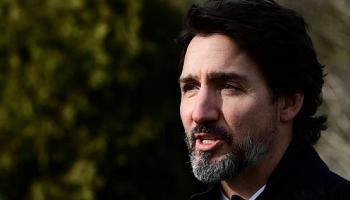Canada uniquely positioned to hit net-zero emissions in 2050 if it makes right moves now: report
Canada is in an advantageous position to reach its goal of net-zero greenhouse gas emissions by 2050, a new report suggests, if governments capitalize on the right opportunities today.
"Uncertainty can either paralyze or propel us," said Jason Dion, research director for the Canadian Institute for Climate Choices, the publicly funded, independent institute behind the report.
"On the one hand, there's enough that we know that we can act on based on what we know … On the other hand, we are going to have to make calculated risk decisions … and if we're placing those bets smartly and we're hedging those bets, I think Canada has enough advantages that there's a real win for us here."
Monday's report, titled Canada's Net Zero Future, looks at more than 60 modelling scenarios, as well as consulting with experts and a review of existing research to chart multiple pathways the country could take to hit its goal — looking at different combinations of possibilities to see what drivers are consistent factors in pushing a transition.
Focusing on safe bets, with small gambles
It separates those solutions into two categories that will both require investment, Dion said: safe bets and wild cards.
Safe bets, like smart grids or electric cars, will need to be scaled up through increasingly strict policies to generate the majority of needed emissions reductions.
Wild cards are described as bets on more high-risk, high-reward technologies like hydrogen fuel cells — technologies that could play a big role, but are significantly more uncertain.
"We find that there are things that we can and should move forward with with confidence starting today, because no matter how the transition plays out, they're always there," Dion said.
"We need to be working on both, to get the wild cards ready for when we need them … so we need to do pilot projects, research and development, even public investment to get these things off the ground. But that can't distract us from the work that we have to do on safe bets."
Canada's goal of hitting net zero follows recommendations from the United Nations' Intergovernmental Panel on Climate Change which has stated that 2050 is the year global emissions need to be lowered to limit global temperature increase to 1.5 C.
That number, a target of the Paris agreement, is the lowest temperature increase that would avoid the most catastrophic consequences of climate change, scientists have said.
Sabrina Kim, communications director for Environment and Climate Change Minister Jonathan Wilkinson, said in an emailed statement that the report reaffirms that Canada can achieve a net zero future.
"Major economies, businesses and investors are already moving in this direction because they understand that taking action on climate change is good for economic growth," she said.
"Working with Canadians, we will continue to spot and seize opportunities to move to a cleaner economy in order to create good jobs for Canadians and provide the climate solutions that we, and the world, urgently require."
Dion said it's vital to start thinking about climate change, not just for the serious environmental and health impacts it poses, but for economic risks that could come from market responses — for example rising demand for electric vehicles or lower global demand for oil — which he said can arise on a larger scale independent of any domestic policy choices.
Comments
There are 0 comments on this post








